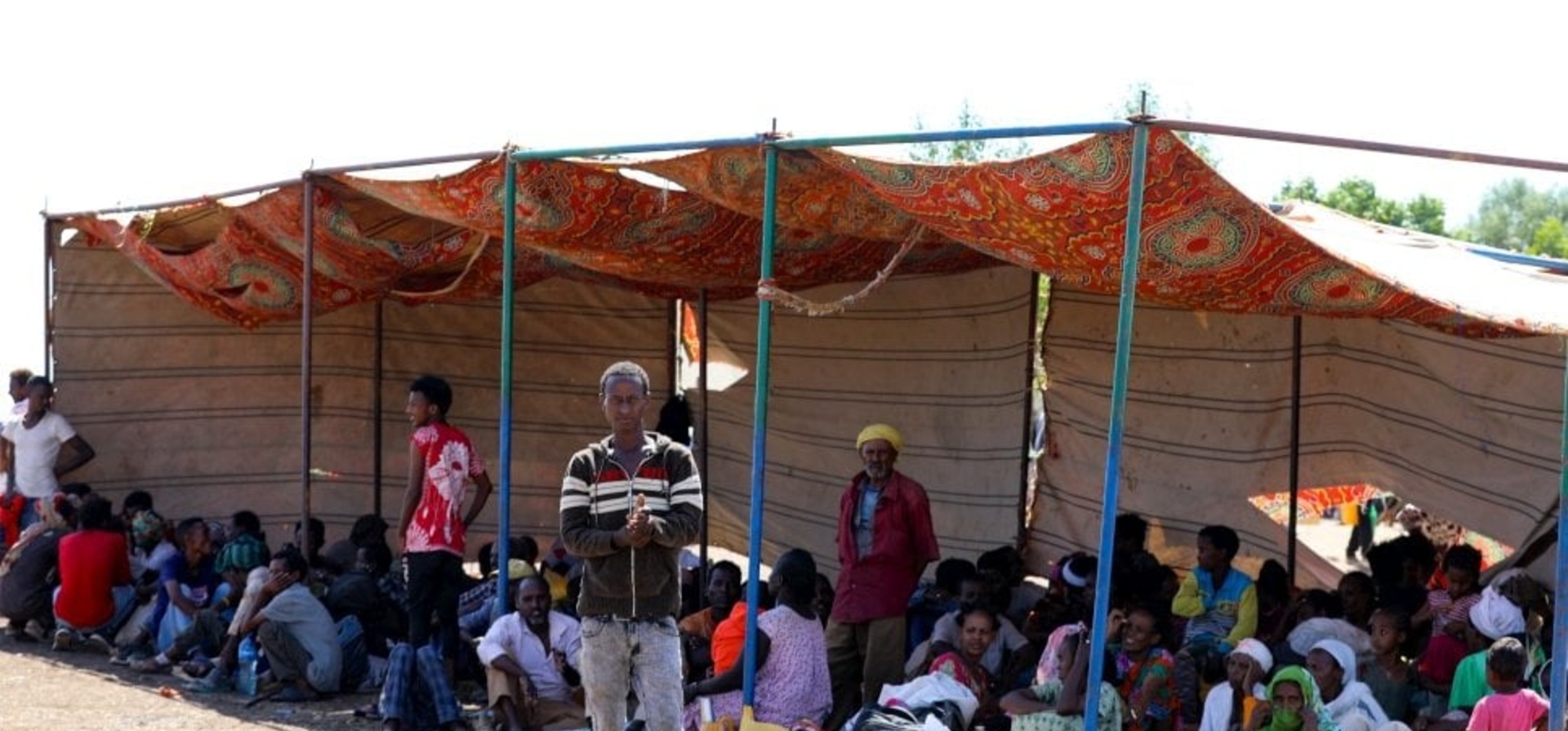Humanitarian crisis deepens amid ongoing clashes in Ethiopia’s Tigray region

Humanitarian crisis deepens amid ongoing clashes in Ethiopia’s Tigray region
Ethiopians, who fled their homes due to ongoing fighting, are pictured at a refugee camp in the Hamdait border area of Sudan’s eastern Kassala state on November 12, 2020. © AFP
UNHCR, the UN Refugee Agency, is extremely concerned about the worsening crisis in northern Ethiopia where ongoing clashes between the Ethiopian federal government and Tigray forces are driving thousands of people to flee, more than half of them children.
Since the violence began early November, more than 14,500 children, women and men have fled into Sudan in search of safety, overwhelming the current capacity to provide aid. Meanwhile, services for 96,000 Eritrean refugees inside Tigray have been seriously disrupted, with reports of growing number of Ethiopians becoming displaced internally.
UNHCR calls on all parties to respect the safety and security for all civilians in Tigray.
In Ethiopia, fighting in Tigray yesterday moved closer to Shimelba refugee camp – which hosts 6,500 Eritrean refugees – raising concerns of mass displacement from the camp. UNHCR is making preparations to receive refugees who have already begun arriving in Hitsats camp, 50 kilometres away, and is considering further relocation options in the region.
General living and operating conditions inside Tigray are becoming more difficult with power outages and food and fuel supplies becoming extremely scarce. Communications have been cut off creating an information black out.
The numbers of refugees seeking safety in neighbouring Sudan are increasing rapidly – with over 4,000 crossing the border in just one day. The majority have crossed at Hamdayet border point in Kassala State and others at Lugdi in Gedaref State.
People are arriving with very few belongings indicating they fled in a hurry. Arriving children are exhausted and scared. The majority originate from Humera inside Tigray, with others coming from the neighbouring towns of Rawyan and Dima.
UNHCR and its partners are ramping up assistance, but the numbers of new arrivals are far outpacing the capacity on the ground.
The transit center at Hamdayet border crossing has a capacity to accommodate 300 refugees, but is already overwhelmed with 6,000 people. Sanitation facilities are insufficient, impacting hygiene.
Those crossing through Lugdi are temporarily hosted at a transit centre in a site called Village 8, located 35 kilometres away from the border. Hot meals are being provided with support from the World Food Programme and Muslim Aid. Local communities are also generously supporting the refugees with food.
The Sudan Red Crescent Society has deployed medical staff and essential medicines, to Hamdayet to conduct health screenings, including for COVID-19, with plans to strengthen health support in the coming days.
As the numbers grow, the Government has approved the establishment of a refugee camp at Um Rakuba, 80 kilometres from the border, with a capacity to host up to 20,000 people. Additional sites are currently being identified.




